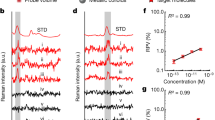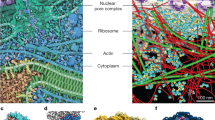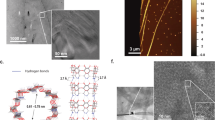Abstract
Consden, Gordon and Martin1 have described an apparatus for the electrophoretic separation of molecules of low molecular weight in a solid medium. They show that rapid perfusion of the electrodes of such an apparatus is essential, in order that, even after the potential has been applied for some considerable time, there may be no appreciable change in pH. at the gel/liquid interface due to increased ionic concentration at this point. In the apparatus described in their paper, the perfusion buffer is lost, since, after bathing the electrodes, it passes into the cooling chamber beneath the gel trough, and so to waste. Two considerations led me to explore the possibilities of separating these two liquids.
This is a preview of subscription content, access via your institution
Access options
Subscribe to this journal
Receive 51 print issues and online access
$199.00 per year
only $3.90 per issue
Buy this article
- Purchase on Springer Link
- Instant access to full article PDF
Prices may be subject to local taxes which are calculated during checkout
Similar content being viewed by others
References
Consden, Gordon and Martin, Biochem. J., 40, 33 (1946).
Author information
Authors and Affiliations
Rights and permissions
About this article
Cite this article
HALL, D. A Modified Ionophoresis Apparatus. Nature 162, 105–106 (1948). https://doi.org/10.1038/162105a0
Issue Date:
DOI: https://doi.org/10.1038/162105a0
Comments
By submitting a comment you agree to abide by our Terms and Community Guidelines. If you find something abusive or that does not comply with our terms or guidelines please flag it as inappropriate.



